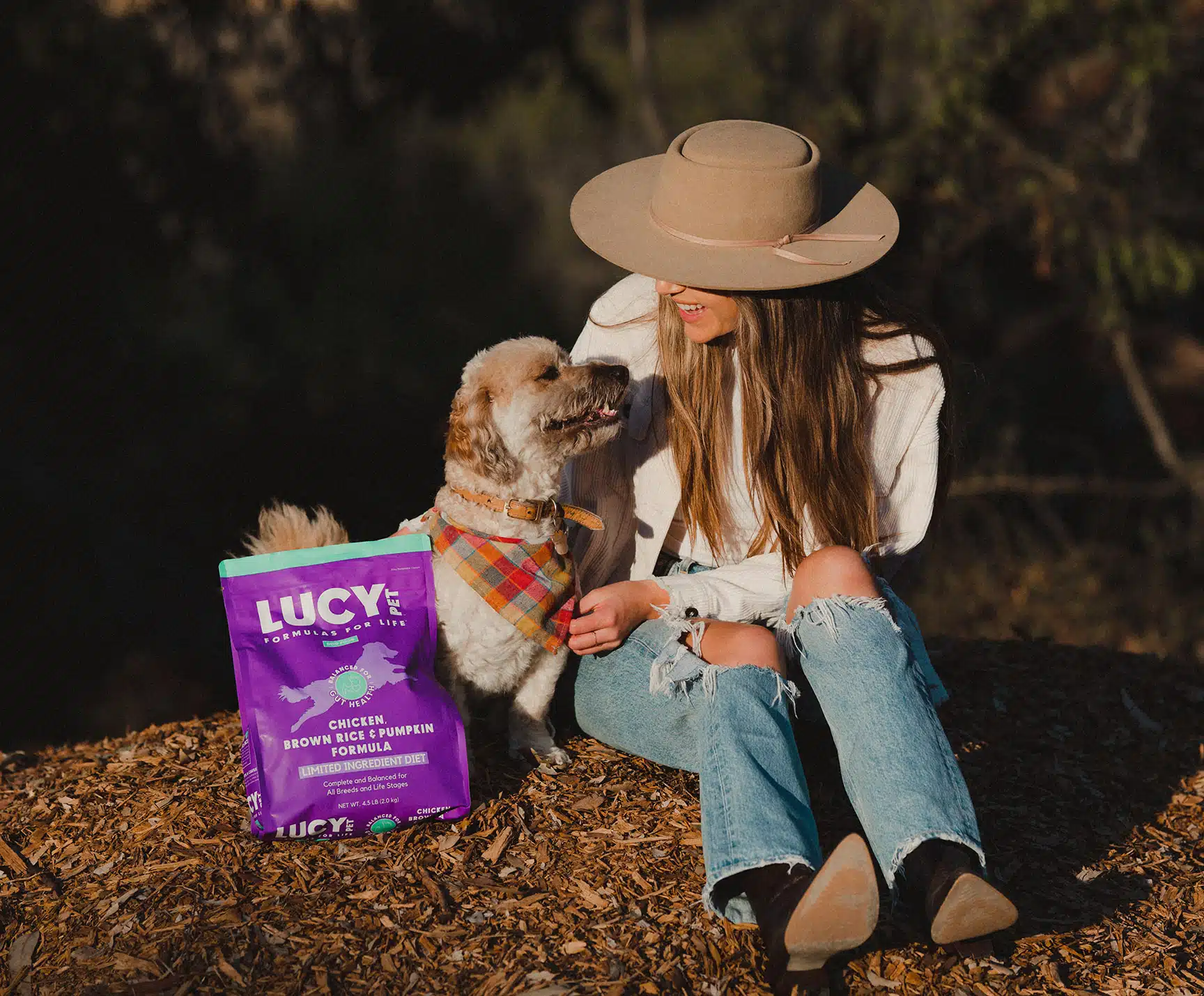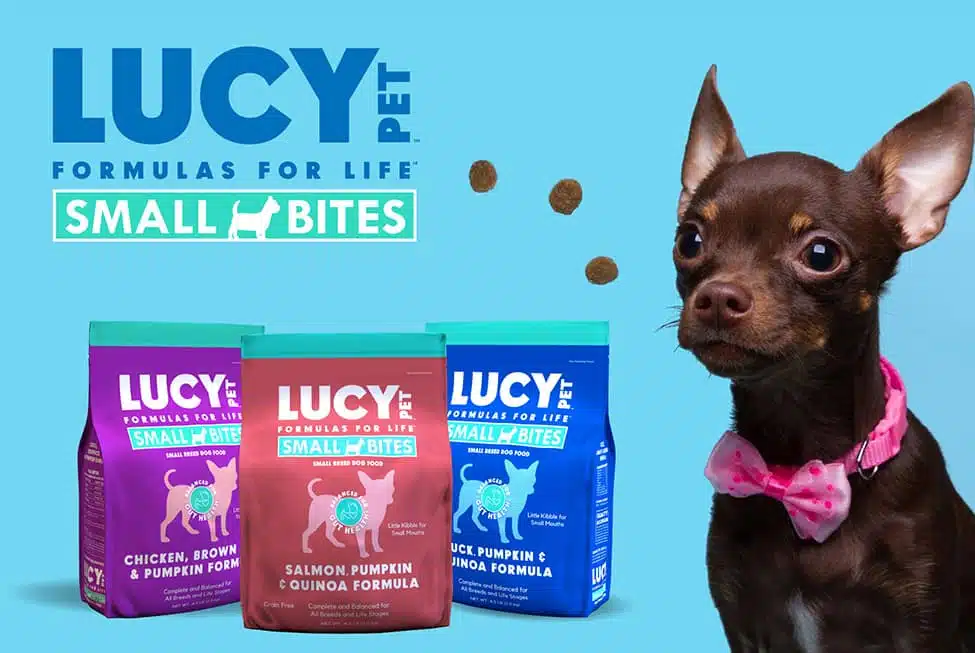
With so many buzzwords in the world of dog food, it can be overwhelming at times for pet parents to navigate the litany of nutrition options available on the market. From knowing what types of food to feed a specific dog breed or even the best diet for an overweight pooch, there is an endless array of options to choose from. The good news? Some of the latest food trends are actually healthy for our furry companions, too. Take for example the quinoa phenomenon – once a relatively unfamiliar food to the US, this ancient grain has grown in popularity over the past few years, even appearing on pet blogs such as Petnet as a hot new health food for both humans and their four-legged friends. So the question remains: is quinoa good for dogs? In this article, we’ll explore many frequently-asked questions, including the quinoa for dogs benefits – and what pet foods feature this superfood that has garnered so much attention as of late.
Quinoa FAQs: Commonly-Asked Questions About The “Ancient Grain”
While many of us may have heard of quinoa – or even eat it ourselves – there is much that people do not know about this nutrient-rich ingredient. According to the Whole Grains Council, the majority of the world’s quinoa crop is grown in South America, about a third of which is organic. While there are hundreds of types of quinoa grown, the most common varieties are either white, red, or tan. Although this gluten-free food dates back thousands of years and is often referred to as an “ancient grain”, quinoa is actually a seed. Used as a healthy substitute for certain gluten-heavy carbohydrates such as rice and pasta, quinoa has continued to grow in popularity as health-conscious people search for ways to reduce their processed food intake and cut their caloric intake – especially the gluten-sensitive set. But how does this grain-free food benefit our dogs? Below, a few frequently asked questions regarding quinoa for dogs:
Q: Is Quinoa Safe For Dogs To Eat?
A: A great deal of research has shown that quinoa is a highly nutritious food for humans. But according to the AKC, it’s also safe for dogs and cats, too – in fact, many premium dog kibble brands have begun using it as a substitute for less healthy starches such as wheat, soy, and corn. Loaded with calcium, protein, vitamin E, B-1, B-2, it also touts antioxidant and anti-inflammatory properties. Furthermore, it offers trace minerals such as iron, magnesium, phosphate, and potassium, as well as heart-healthy monounsaturated fat and omega-3 fatty acids – so it’s no wonder that this ‘superfood’ has taken off in popularity for both health-conscious humans and their pets! Since it’s high in both protein and healthy carbs, quinoa is especially beneficial for active dogs and cats.
Q: Does Feeding My Dog Quinoa Pose Any Risks?
A: When processing for cooking, the quinoa seed coating is removed. In nature, the raw seed coating (called saponins) may be a bit bitter, which is why it is removed, but quinoa is a safe food for dogs. And because this coating is usually removed during the cooking and processing phase (if it’s listed in your dog food ingredients), it won’t taste as bitter in your pup’s kibble, since high-quality dog food recipes will add other natural ingredients and seasonings to make it more appetizing.
As in introducing any new food to his diet regimen, keep an eye on your dog if you change his kibble and see how he reacts to it. It’s best to give your dog a small amount at a time, transitioning gradually over a period of several days.
Q: Is Quinoa Good For Dogs With Allergies Or Food Sensitivities?
A: Just as some humans experience food allergies, our canine companions can also experience allergic reactions to certain foods, including dog food ingredients. In the instance that your furry friend has been diagnosed by a veterinarian with canine allergies, the vet’s office may recommend an elimination diet. This type of diet basically entails determining what foods your dog may or may not be allergic to by introducing them to the animal one at a time to see how he reacts. If you notice itching, gastrointestinal problems (such as diarrhea/vomiting/constipation), or even chronic otitis (ear infections), it most likely means he’s allergic to that particular food. Your vet can provide further instructions on this process, but this method – also known as a “restricted diet” – can help to pinpoint what your dog can and cannot eat. In other instances, your dog may have a food sensitivity – such as a reaction to specific foods such as gluten – so he may require a gluten-free diet. In either case, your vet can determine his condition and the best steps to take to ensure he receives the proper nutrition at feeding time.
When diagnosing your dog, some vets will recommend what is known as a “limited-antigen” diet – meaning one protein and one carbohydrate at a time. Furthermore, the foods should be new to the dog – meaning he’s never eaten them before. Among the list of ‘novel’ carbohydrate ingredients – you guessed it, quinoa. Other sources of ‘good’ carbs may include oats, pumpkin, barley, and even dog food containing chickpeas, which is also a great source of protein. If you notice your dog’s allergy symptoms improving, high-quality dog kibble including these ingredients (such as quinoa) may be a great source of nutrition for your pooch.
Q: What Are The Health Benefits Of Quinoa For My Dog?
A: As we’ve covered, quinoa has a vast array of beneficial vitamins and minerals that can really boost your dog’s diet and overall health. Let’s take a closer look at how quinoa can benefit your canine companion from A to Z:
Amino Acids: Crucial to dogs as well as humans, essential amino acids must be derived through proper diet – and quinoa is packed with this vital nutrient. In addition to protecting muscles while increasing muscle growth, it also reduces fatigue – making it an excellent dietary ingredient in any dog’s food regimen.
Vitamin B1: Also known as Thiamine, quinoa is rich in Vitamin B1, which supports canine metabolism as well as proper brain function.
Calcium: Another mineral found in quinoa, calcium supports healthy bones and teeth, and is especially beneficial to pregnant canines and nursing female dogs. The nutrients from calcium support the dog’s body from puppyhood to adulthood.
Carbohydrates: When it comes to dog food, all carbs are not created equal. Many dog foods use cheap carbs and fillers – often corn, rice or wheat – and they don’t always provide the best source of carbohydrates for your dog. Quinoa, on the other hand, is a nutritious complex carbohydrate source, providing your pooch with a steady stream of clean energy. Since the type of sugar molecules found in quinoa takes longer to break down, the nutrition is absorbed more slowly into the dog’s system, sustaining energy levels for a longer time than conventional carbs.
Copper: Essential for maintaining bone health and supporting connective tissues, this mineral also helps to form the myelin sheath, a protein-based substance within the dog’s body that acts as an insulating layer. Myelin forms around the nerves, including those found in the brain and spinal cord, and protects the nerve endings while allowing efficient conductivity of electrical impulses along with the nerve cells.
Fiber: People aren’t the only creatures who need fiber to stay ‘regular’ – our dogs can benefit from it, too. Quinoa is a great source of naturally-occurring fiber, which can help to regulate normal bowel movements and aid in the prevention of constipation.
Vitamin E: Just as humans benefit from the beauty-bonuses Vitamin E has to offer, it can also aid our four-legged friends – whereas it nourishes our skin, nails, and hair, Vitamin E can make our furry pals’ coats smooth, sleek, and shiny.
Iron: In order to protect dogs from anemia, a diet rich in iron is recommended for their overall health and vitality. Adequate iron levels ensure that the red cells are able to develop properly while performing their function – so quinoa is a great source of iron for canines.
Magnesium: Essential to maintaining a dog’s muscle and nerve function, this mineral keeps bones strong while sustaining a regular heartbeat. Additionally, magnesium regulates blood sugar levels and is key to the production of proteins and energy within the body.
Manganese: Yet another highly beneficial mineral to your pooch, manganese aids in carbohydrate and protein absorption, as well as the digestion process. It also ensures proper enzyme function within a dog’s body.
Phosphorus: Fundamental for the body’s utilization of fat and carbs, phosphorus also works with proteins in order to promote the healthy growth & regeneration of tissues and cells in your dog’s body. Since it’s so rich in phosphorus, quinoa is an excellent source for your dog’s overall health, as it supports his heart and kidney functions.
Potassium: A highly beneficial mineral to your pup, potassium helps regulate the delicate balance of electrolytes and other fluids in the body. Additionally, it plays a key role in canine nervous system function – yet another reason why quinoa really is a ‘superfood’ ingredient in any dog’s diet.
Zinc: In addition to aiding in a dog’s metabolic processes, zinc is also a potent antioxidant. Because a deficiency can pose a danger to your dog’s health, choosing foods rich in zinc – such as quinoa – can protect his overall well-being and vitality.
Can Dogs Eat Quinoa: How To Add It To Their Diet, Naturally
As you can see, there are so many benefits to feeding a diet made with quinoa into your dog’s dietary regimen. Choosing quality dog foods such as Lucy Pet can really make a difference in your pet’s health and longevity. With our scientifically-formulated blends of balanced nutrition, our natural dog kibble and treats take the guesswork out of feeding your pup. Packed with healthful ingredients – including gluten-free, amino-rich quinoa, protein-studded chickpeas, premium meats and fish, vitamin and mineral-packed veggies (such as pumpkin), and other superior whole food sources – our dog food formulas are based on 40 years of research and studies by Dr. George C. Fahey. Take the next step in ensuring your furry friend’s vitality and make him a Lucy Pet dog today.
Sources Cited:
- Ripley, Katherine. “Can Dogs Eat Quinoa?” American Kennel Club (AKC.org), August 1, 2018, https://www.akc.org/expert-advice/nutrition/can-dogs-eat-quinoa/. Accessed December 15, 2019.
- “Healthy Ingredients for Your Pet: Quinoa.” Petnet, May 17, 2018, https://www.petnet.io/blogs/food/healthy-ingredients-pet-quinoa. Accessed December 15, 2019.
- Foley, Cynthia. “Will Your Allergic Pet Benefit From a Food Elimination Diet?” Whole Food Journal.com, March 21, 2019, https://www.whole-dog-journal.com/health/allergies/will-your-allergic-dog-benefit-from-a-food-elimination-diet/. Accessed December 15, 2019.
- “Can Dogs Eat Quinoa? Is It Good For Dogs or Not?” Barking Royalty.com, (no publish date), https://barkingroyalty.com/can-dogs-eat-quinoa/. Accessed December 15, 2019.
- Leotaud, Marissa. “Can Dogs Eat Quinoa?” Cuteness.com, November 29, 2017, https://www.cuteness.com/13707555/can-dogs-eat-quinoa. Accessed December 15, 2019







Leave A Comment
You must be logged in to post a comment.